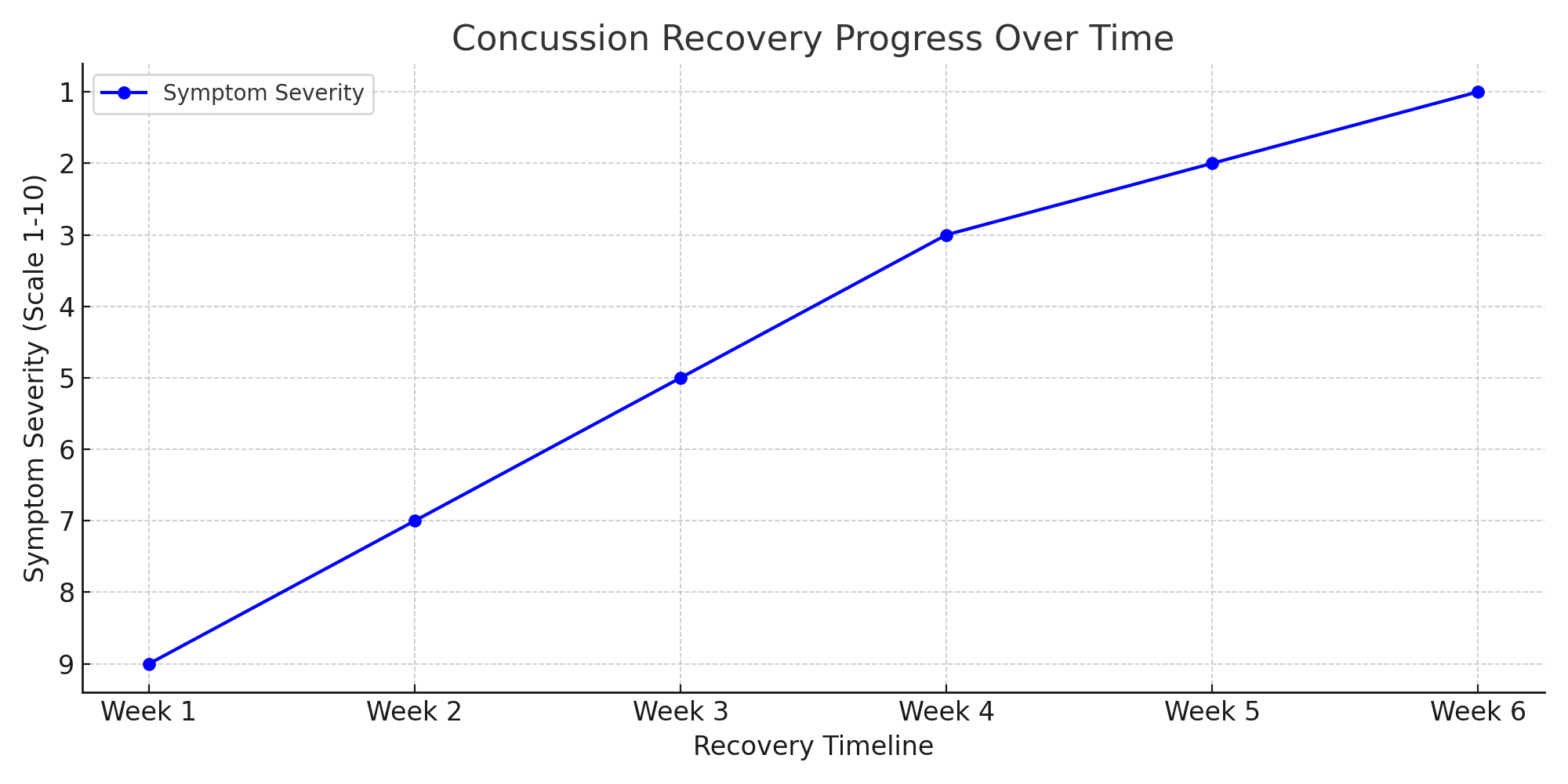
Bouncing Back Strong: A Fighter's Guide to Concussion Recovery
Bouncing Back Strong: A Fighter's Guide to Concussion Recovery
Stepping into the ring is akin to a chess match—every move calculated, every strategy deliberate. But even the best-laid plans can be upended by an unexpected blow, leading to a concussion. In combat sports, where head impacts are part of the game, understanding and managing concussions is crucial for every fighter's longevity and well-being.
The Hidden Opponent: Understanding Concussions in Combat Sports
In the heat of battle, it's easy to overlook the subtle signs of a concussion. Unlike visible injuries, concussions are internal and can manifest hours or even days after the initial impact. Symptoms may include headaches, dizziness, confusion, and memory disturbances. Recognizing these signs early is vital to prevent further complications.
"In combat sports, head contact is an objective of the sport itself. Accordingly, management and treatment of concussion in combat sports should, and must, be more stringent than for non-combat sports counterparts." — Association of Ringside Physicians
Rest vs. Activity: Finding the Balance in Recovery
Traditionally, complete rest was prescribed post-concussion. However, recent studies suggest that incorporating light aerobic exercise within the first few days can expedite recovery. Engaging in controlled, symptom-limited physical activity may reduce the duration of post-concussion symptoms.
Notably, a study found that early exercise (within 2 days post-concussion) was associated with faster symptom resolution. Source
"Exercise is medicine: Get moving after a concussion to heal faster." — University of Michigan Health
Building Your Recovery Corner: Assembling a Support Team
Recovery isn't a solo journey. Surrounding yourself with a multidisciplinary team—including physicians, neurologists, and sports psychologists—ensures a comprehensive approach to healing. This collective expertise aids in addressing both the physical and psychological facets of concussion recovery.
"A team approach is essential in managing concussions, especially in combat sports where the stakes are high." — Dr. Nitin Sethi, Neurologist
The Mental Battle: Overcoming Psychological Hurdles
Beyond physical symptoms, concussions can take a toll on mental health, leading to anxiety, depression, or fear of returning to the ring. Addressing these challenges is as crucial as physical rehabilitation. Engaging with a sports psychologist can provide coping mechanisms and build mental resilience.
"Mental resilience is just as important as physical strength in overcoming the challenges posed by concussions." — Dr. John Neidecker, Sports Medicine Specialist
Visualizing Recovery: Tracking Progress
Monitoring your recovery journey can provide motivation and highlight areas needing attention. Utilizing tools like symptom diaries or mobile health apps can offer insights into patterns and progress over time.

FAQs: Navigating Concussion Recovery
1. How soon can I return to training after a concussion?
Returning to training should be a gradual process, guided by a healthcare professional. Starting with light aerobic exercises and progressively increasing intensity ensures safety. Always ensure you're symptom-free before advancing stages. Source
2. Are there long-term effects of concussions in combat sports?
Repeated concussions can lead to chronic issues like cognitive impairments or mood disorders. It's essential to manage each concussion properly to mitigate long-term risks. Source
3. Can I prevent concussions while continuing to compete?
While the risk can't be entirely eliminated, using proper protective gear, refining techniques to avoid head impacts, and adhering to safety protocols can significantly reduce the likelihood of concussions.
Action Steps: Your Roadmap to Recovery
- Immediate Rest: Allow your brain to recover by refraining from physical and cognitive activities immediately after injury.
- Seek Medical Evaluation: Consult a healthcare professional experienced in concussion management to assess severity and guide recovery.
- Gradual Return to Activity: Under medical supervision, initiate light aerobic exercises, ensuring no symptom exacerbation. ::contentReference[oaicite:0]{index=0}
- Track Symptoms: Maintain a journal or use a digital tool to log symptoms, triggers, and progress over time.
- Prioritize Mental Health: Include a sports psychologist in your recovery plan to manage emotional and psychological hurdles.
- Respect the Process: Avoid rushing back into the ring. A slow and steady return reduces reinjury risks and ensures lasting recovery.
Conclusion: Rise, Recover, Return
Concussions in combat sports are more than just momentary setbacks—they're serious events that demand respect and strategic care. But with the right mindset, support, and recovery plan, you can bounce back even stronger.
By acknowledging the signs, investing in rest and rehabilitation, embracing expert guidance, and tending to your mental resilience, you're not just healing—you’re building a smarter, more enduring fighter. Remember, every champion was once knocked down. What defines them is how they got back up.
💬 Join the Conversation
Have you experienced a concussion or helped someone through it? What strategies worked best for recovery? Share your thoughts in the comments, tag a fighter who needs this, or spread the word by sharing this article with your training community!
📚 Additional Resources
- CDC: Concussion and Mild TBI Recovery
- BJSM: Consensus on Concussion in Sport
- Mayo Clinic: Concussion Symptoms & Treatment
Visual Download: Download Recovery Progress Chart




